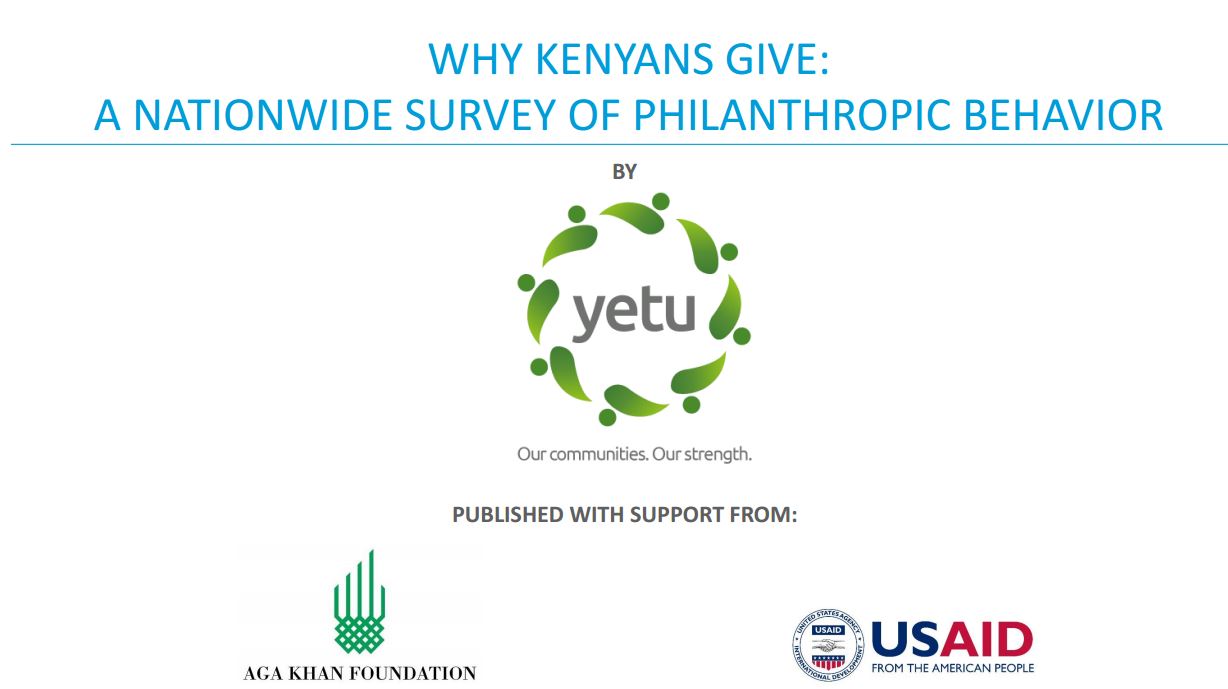In a nationwide survey, Yetu conducted quantitative research in all 47 Kenyan counties in order to gain a greater understanding of philanthropic behaviour among Kenyans. Yetu, an organisation dedicated to building a better future in Kenya through stronger communities, partnered with the Aga Khan Foundation and the US Agency for International Development (USAID) for the survey.
The survey consisted of 1,991 interviews, 1,047 of which being rural and the remaining 944 being urban. The respondents were all male and female Kenyan citizens above the age of 18, representing all social economic classes. The key finding was that 93 per cent of Kenyans are philanthropic, giving through cash, volunteering, or in-kind.
 The key challenges that Kenyans feel they face are related to health, education, poverty, and economic empowerment with health on top at 26 per cent. While the percentage gap between the importance of the issues is not significant, the key issues trailing health include education, poverty, economic empowerment, peace and security, youth, and water.
The key challenges that Kenyans feel they face are related to health, education, poverty, and economic empowerment with health on top at 26 per cent. While the percentage gap between the importance of the issues is not significant, the key issues trailing health include education, poverty, economic empowerment, peace and security, youth, and water.
The amount that Kenyans give is largely dependent upon the types of needs the beneficiaries have as well as the amount that donors have at the time. 22 per cent plan on what to give by setting aside a certain portion of their income, though most give responsively (based on impulse as needs arise) as opposed to periodically.
While much of their giving is done in groups such as religious, self-help, or family, most of the donations go straight to individuals rather than organizations. The remaining 7 per cent of Kenyans who don’t give cite that the main barriers to giving include lack of trust in organizations and lack of finances.
For more information, find the full survey here.
Halie Dalton is a student at James Madison University, Virginia, and is currently an editorial intern with Alliance.



Comments (0)